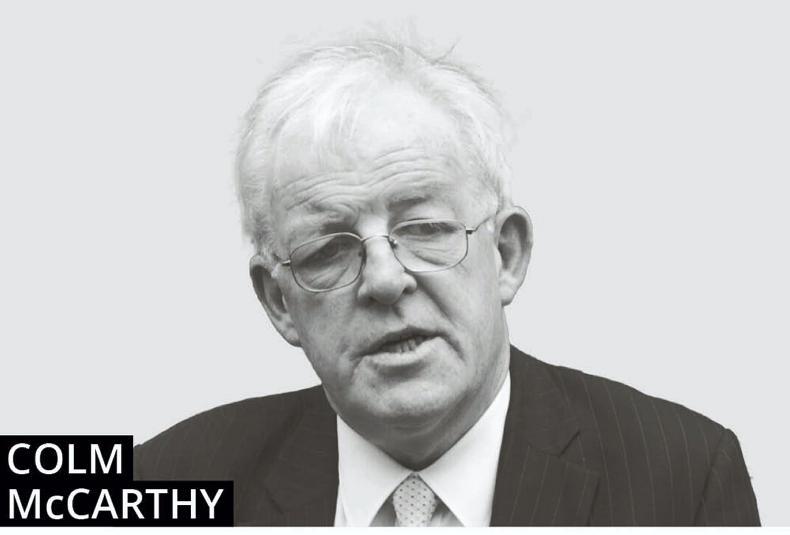The British government’s bungling performance in its handling of Brexit, admittedly an enormous challenge, has attracted widespread comment in the UK itself and just about everywhere else. Quite a few people have been complimentary about the rather more assured performance in this country. But is it really true that there has been a sharp decline in the competence level at the top end of UK politics, and if so, is this the outcome of some random process or a reflection of more deep-seated problems?
Large countries ought to do better in any international comparisons. The German soccer team has the best overall record in European competition over recent decades and if they were playing Norway tomorrow most people would expect Germany to win. This is not because the average German is superior to the average Norwegian on the soccer field. It is because there are lots more Germans, and the best 11 are likely to be pretty good. If the two teams were chosen at random from the voting register there should be little difference.
Ministerial office is just about the only important job which requires no professional training whatsoever
Perhaps the decline, in prestige and remuneration, of careers in public service is beginning to cause a levelling-down in larger countries: maybe the politicians really are chosen more at random than used to be the case. Prospective candidates, after all, are self-selected and ministerial office is just about the only important job which requires no professional training whatsoever.
The poor competence level in Britain is illustrated daily on the news and current affairs programmes. A frontbench Labour spokeswoman declared recently that Britain should seek “tariff-free membership of the single market”, a statement devoid of meaning. The single market is about non-tariff barriers. The prominent Conservative backbencher, Jacob Rees-Mogg, described the permanent loss of Britain’s annual net contribution to the EU budget as rendering the European Union “effectively insolvent”. The annual net contribution is about £9bn, which certainly sounds a lot. But the population of the EU-27 is 450m, so it works out at £20 per head per annum or less than 0.1% of national income in the surviving 27 member-states. This is a rounding error.
Daft statements
What is most striking though was not the daft statements made by these people, but the consistent failure of TV interviewers on BBC, Sky News and Channel 4 to challenge the waffle. While some of the broadsheet newspapers have been better, the tabloids have not engaged with the substance of the Brexit decision at all. The worst of them, the Daily Express, appears at times to be re-fighting the second world war.
The resort to referendum, that most un-British device, to decide the issue placed a high premium on the media’s ability to inform the public debate. They failed during the referendum campaign and have continued to fail in the period since.
Most egregious failure
The most egregious failure is that of the BBC, the recipient of £3.7bn annually from the tax on the ownership of TV sets. The interpretation of “balance” in reporting the Brexit debate at the BBC appears to require neutrality between factual information and unchallenged Brexiteer assertions.
Reporters continue to give currency to the notion that British willingness to pay a high exit bill will somehow extract better trade access for the UK post-Brexit. Nobody in Brussels has ever said anything to encourage this view: indeed it is open to the British to opt for continuing membership in the European Economic Area, giving full single market rights à la Norway. It is British ministers, not the Europeans, who have chosen to rule out this option. Some of the British ministers, including Boris Johnson, misled voters on this very issue during the referendum campaign.
The most likely outcome is eventual British exit from both single market and customs union
There will be a further round of negotiations in Brussels in mid-December but at this stage no serious progress is expected. The most likely outcome is eventual British exit from both single market and customs union, tortuous negotiation of a Canada-style free-trade agreement as a third country, a row over the exit bill and much bad blood all round. Whatever is done about the Irish border, this outcome means serious trade impediments between the Republic and Britain, a far bigger trading partner than Northern Ireland.
When the history of this episode comes to be written, David Cameron’s decision to put the matter to referendum, at the mercy of the mainly Eurosceptic press and a “neutral” BBC, will seem the greatest miscalculation in modern British history. But his successor Theresa May proceeded to trigger Article 50, the resignation letter, before her government had settled on its negotiating objectives, thus removing the pin from a grenade which goes off in March 2019. This decision has shorn the UK government of any negotiating leverage and backed the saner ministers (there are some) into a diplomatic cul-de-sac.
Read more
Full coverage: Brexit
The British government’s bungling performance in its handling of Brexit, admittedly an enormous challenge, has attracted widespread comment in the UK itself and just about everywhere else. Quite a few people have been complimentary about the rather more assured performance in this country. But is it really true that there has been a sharp decline in the competence level at the top end of UK politics, and if so, is this the outcome of some random process or a reflection of more deep-seated problems?
Large countries ought to do better in any international comparisons. The German soccer team has the best overall record in European competition over recent decades and if they were playing Norway tomorrow most people would expect Germany to win. This is not because the average German is superior to the average Norwegian on the soccer field. It is because there are lots more Germans, and the best 11 are likely to be pretty good. If the two teams were chosen at random from the voting register there should be little difference.
Ministerial office is just about the only important job which requires no professional training whatsoever
Perhaps the decline, in prestige and remuneration, of careers in public service is beginning to cause a levelling-down in larger countries: maybe the politicians really are chosen more at random than used to be the case. Prospective candidates, after all, are self-selected and ministerial office is just about the only important job which requires no professional training whatsoever.
The poor competence level in Britain is illustrated daily on the news and current affairs programmes. A frontbench Labour spokeswoman declared recently that Britain should seek “tariff-free membership of the single market”, a statement devoid of meaning. The single market is about non-tariff barriers. The prominent Conservative backbencher, Jacob Rees-Mogg, described the permanent loss of Britain’s annual net contribution to the EU budget as rendering the European Union “effectively insolvent”. The annual net contribution is about £9bn, which certainly sounds a lot. But the population of the EU-27 is 450m, so it works out at £20 per head per annum or less than 0.1% of national income in the surviving 27 member-states. This is a rounding error.
Daft statements
What is most striking though was not the daft statements made by these people, but the consistent failure of TV interviewers on BBC, Sky News and Channel 4 to challenge the waffle. While some of the broadsheet newspapers have been better, the tabloids have not engaged with the substance of the Brexit decision at all. The worst of them, the Daily Express, appears at times to be re-fighting the second world war.
The resort to referendum, that most un-British device, to decide the issue placed a high premium on the media’s ability to inform the public debate. They failed during the referendum campaign and have continued to fail in the period since.
Most egregious failure
The most egregious failure is that of the BBC, the recipient of £3.7bn annually from the tax on the ownership of TV sets. The interpretation of “balance” in reporting the Brexit debate at the BBC appears to require neutrality between factual information and unchallenged Brexiteer assertions.
Reporters continue to give currency to the notion that British willingness to pay a high exit bill will somehow extract better trade access for the UK post-Brexit. Nobody in Brussels has ever said anything to encourage this view: indeed it is open to the British to opt for continuing membership in the European Economic Area, giving full single market rights à la Norway. It is British ministers, not the Europeans, who have chosen to rule out this option. Some of the British ministers, including Boris Johnson, misled voters on this very issue during the referendum campaign.
The most likely outcome is eventual British exit from both single market and customs union
There will be a further round of negotiations in Brussels in mid-December but at this stage no serious progress is expected. The most likely outcome is eventual British exit from both single market and customs union, tortuous negotiation of a Canada-style free-trade agreement as a third country, a row over the exit bill and much bad blood all round. Whatever is done about the Irish border, this outcome means serious trade impediments between the Republic and Britain, a far bigger trading partner than Northern Ireland.
When the history of this episode comes to be written, David Cameron’s decision to put the matter to referendum, at the mercy of the mainly Eurosceptic press and a “neutral” BBC, will seem the greatest miscalculation in modern British history. But his successor Theresa May proceeded to trigger Article 50, the resignation letter, before her government had settled on its negotiating objectives, thus removing the pin from a grenade which goes off in March 2019. This decision has shorn the UK government of any negotiating leverage and backed the saner ministers (there are some) into a diplomatic cul-de-sac.
Read more
Full coverage: Brexit









SHARING OPTIONS